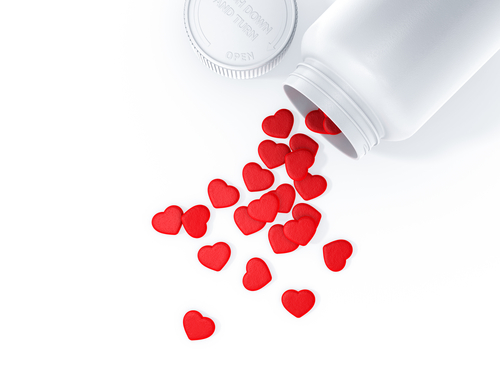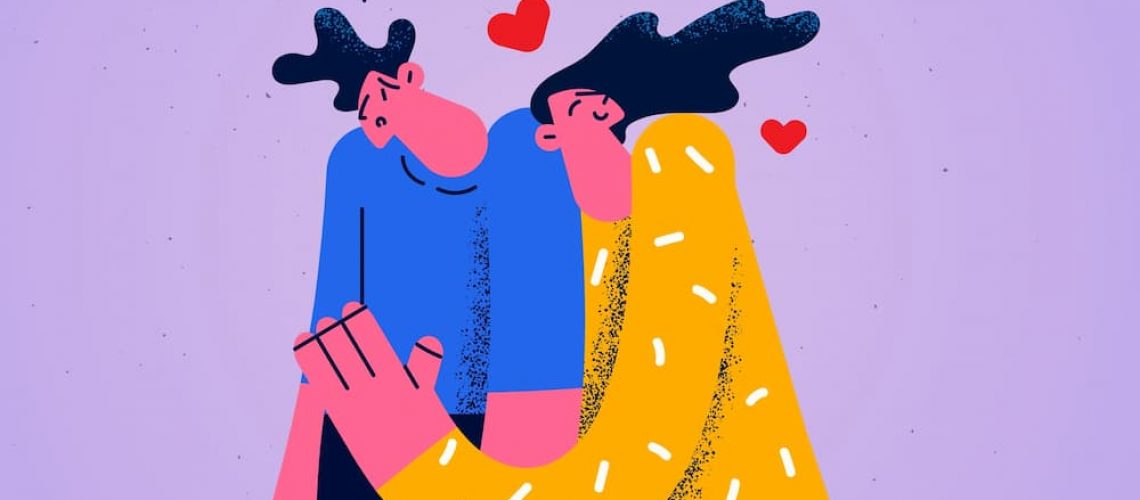Love is probably the most discussed emotion in the realm of human feelings. We know it when we feel it – we feel the void when it is absent. We may not be able to easily define it, but we generally all accept that experiencing love is essential to the human experience.
In its purest form, love is like a silken thread that holds the tapestries of our lives together. It is present in warm memories, valuable relationships, and rich experiences. Love can be a motivating force – an invisible power that uplifts and inspires, a state of mind that transcends the ordinary, a wind beneath our wings that can drive us to be the best versions of ourselves.
For some, however, love feels frustratingly elusive and scarce. The hungry pursuit of love creates a desperate longing, a frantic quest for the intangible thing that others seem to have gathered in abundance. No matter how many moments of fondness, connection, intimacy, or emotional vulnerability this person shares with another, it may never be enough. It may never feel like the experiences have quenched the longing for love that drives their pursuits.
Welcome to the realm of “love addiction”. This is a term that some have used to describe the experience of being so consumed by the intense pursuit of relational connection that the obsessive feelings actually inhibit the development of healthy relationships, and result in negative consequences. At Pivot, we agree that obsessive thinking and maladaptive behavior patterns exist, but we look at it a little differently.
Love isn’t actually addictive. That’s right. That’s what we believe, even though it may not match what you’re read or heard before now. Love isn’t addictive. We believe that love, like happiness, contentment, or other pleasurable emotions, can exist plentifully without causing harm. Being flooded in love, committed to love, or learning to live in the constant spirit of love isn’t inherently toxic – at least not in the way that we would think of being committed to a substance or addictive behavior like gambling would cause concrete damage.
When people talk about being “addicted to love”, what we’ve discovered is that they are usually caught in pathological cycles of unhealthy behavior as they (often unconsciously) attempt to repair early attachment wounds. This attachment dysregulation looks like what people would call “love addiction.” What people in this category are usually chasing, however, is not the love of the partner or current object of their obsession – it’s the unmet emotional needs and sense of psychological security that they truly needed in an earlier developmental stage.
If that rewording sounds like a distinction without a difference to you, then consider this. If the problem is “love addiction” – if, like other addictions, the person in question is not able to responsibly manage love – then the logical conclusion would be something like abstinence or minimal “usage.” The “cure” would be love reduction.
When we think of those same thoughts, feelings, and behaviors as resulting from attachment injuries, then the “cure” looks very different. Love – real secure love – can be a healing, corrective force in the person’s life rather than a frightening temptation – a craving to be fought off. The “treatment” for attachment injury starts with the most vital love of all – that which is directed inward.
Those who find themselves in this category may feel like they are on an incessant quest for validation, fostering a ravenous hunger for connection partnered with a deep-seated fear of abandonment. They are consumed by an all-encompassing belief that the right romantic connection will finally make them feel “loved.” In this sense, “loved” means healed, secure, emotionally safe, and free from the constant relational anxiety that their attachment injuries have created.
Those who have been described as love addicts are often experiencing anxious attachment. This is a state that leaves people in an ongoing pursuit to repair their old emotional injuries through romantic relationships. This is normally accompanied by a poor sense of self-worth. In their relentless pursuit of the right, reparative relationship. they may neglect their own well-being, willingly sacrificing personal boundaries, and losing their own identity in the process.
They also may often try to force relationships that are not healthy or loving, driven by the underlying fear that being alone would confirm their poor self-esteem. For then, being in toxic dynamics feels better than being alone.
Like a complex puzzle, this anxious attachment is composed of interlocking pieces, including the individual’s past, the relationships their caregivers modeled, and their early experiences with love. Things like rejection, betrayal, and relational trauma also play a role. We are like books that were written early in our lives but are always being edited and updated. The good news about that is that this means that we can change the way we attach and that we can experience relational security.
What Is Love Addiction?
Again, a reminder that at PIVOT, we don’t use the term love addiction. We also recognize that many people do. It’s a well-used phrase in the area of relational health. In fact, you have landed here on this article specifically because you searched for “love addiction.”
We also recognize that the term “love addiction” may create some specific negative responses for those struggling with anxious attachment. Being told you’re addicted to love may feel shaming, daunting, or may leave you wondering how you’ll ever have a normal relationship if you can’t be trusted to manage love. Don’t worry – we believe that once you understand and work toward healing the underlying attachment injuries, that you can flourish safely with love!
In this article, we will speak to “love addiction” as it is commonly understood, and shine light onto how anxious attachment patterns drive “love addiction.”
“Love addiction” is not merely a “penchant for romance” nor the thrilling sensation of falling head over heels for someone. It goes way beyond that. Imagine feeling like you can’t breathe, can’t think, maybe can’t even go on, if you think your significant other may be pulling away. AND… you are constantly perceiving rejection and relationship risk everywhere.
This is how love addicts feel: constantly overwhelmed by the emotional dependence on another person, yearning for connection and affection to such a degree that it can consume every aspect of their life. Their obsessive behavior not only fails to create the relationship security they’re desperately seeking, it often pushes their partner further away – thus creating the dreadful reality that their anxious attachment fearfully predicted.
This behavior may ultimately result in them making their romantic interest into the focal point of their entire existence. They often put their partners on a proverbial pedestal, sacrificing their own interests and well-being just to maintain the connection. They are afraid to set boundaries, to ask for their needs to be met, or to create any disruption that may alienate their partner.
At the same time, they may be also blasting their partner with demands for relational confirmation and validation. They may frequently ask “do you love me?”, “are you attracted to me?”, or “do I make you happy?” They may feel that investigative strategies like checking their phone, email or social media can help them avoid or prepare for the painful expectation of rejection.
Unfortunately, these relentless (and endless) pursuits can also lead to a profound sense of emptiness when a love addict’s partner isn’t around. Additionally, the normal range of relationship challenges and tribulations may feel devastating for them.
Love addiction is often termed that way because the sufferers feel trapped in a cycle of seeking out a “hit”, receiving a temporary “fix”, and then “crashing” into despair when that love is threatened or lost. It feels like they are
What Is The Connection Between Love Addiction & True Addiction?
It’s important to note that Love Addiction is not diagnostically recognized and does not appear in the DSM V (the Diagnostic and Statistical Manual of Mental Disorders.) Anxious attachment is often diagnostically recognized as an anxiety disorder or as traits or diagnostic criteria of personality disorders. For both “love addiction” and anxious attachment, we can identify some similarities to other diagnostic addictions (like Substance Use Disorder or SUD). Often people recognize their patterns in these descriptions of pathological behaviors:

- Compulsive actions and craving: Emotionally, one may crave (have an intense psychological and physiological longing for) emotional connection and validation from their partners, while individuals with SUD experience an overpowering craving for a substance. In both cases, the desire is so intense that it becomes difficult to resist, potentially leading to a loss of control over one’s actions.
- Temporary highs and lows: “Love addicts” feel a surge of euphoria when their partners reciprocate their affection, while individuals using drugs or alcohol experience a temporary high. However, the fleeting nature of these positive feelings is unsustainable, leading to emotional crashes and a state of despair and emptiness in the absence of the rush.
- Dependency and withdrawal: “Love addicts” become emotionally dependent on their partners, relying on them for validation and a sense of self-worth. Similarly, individuals with SUD develop physical and/or psychological dependence on drugs or alcohol, requiring more and more to create the desired effect, and a painful withdrawal in its absence..
- Coping with difficult feelings: Over-indulgence of any soothing behavior can sometimes be a way of coping with feelings of pain and loneliness. Both “love addicts” and persons with SUDs may be driven by underlying trauma, fears, pain and anxiety.
- Interference with daily life: Both types of obsessions can interfere with an individual’s daily life and responsibilities. A “love addict” may neglect personal commitments, hobbies, and friendships in their all-consuming pursuit of love in the same way a SUD-affected person can neglect work, family, and social obligations due to the preoccupation with obtaining and using drugs.
- Cycle of craving and relapse: “Love addicts” may repeatedly seek new relationships or return to unhealthy ones despite past negative experiences. Similarly, individuals with substance use disorder may attempt to quit using drugs but face relapses due to the addictive nature of the substances.
Despite these similarities, it’s essential to acknowledge some significant differences between love addiction and substance use disorder. The first and most important distinction is that for the “love addict” it is not per-se the LOVE that is creating the toxic damage in their life. It is the maladaptive attempts to create dysfunctional attachment repair. In other words, you can have tragic outcomes that result from behaviors rooted in trauma, but you can’t overdose on love.
Second, SUD is clinically diagnosable, unlike love addiction. It is a disease that requires medical treatment, whereas the latter is a compulsive behavior that can be addressed through counseling or therapy.
What Causes “Love Addiction”?
Most unwanted behavior patterns are complex and can stem from various underlying factors. Love addiction specifically often finds its roots in childhood experiences and relationships, as well as past traumas. These combine to form the attachment storm that feels like love addiction.
The Impact Of Childhood Experiences
- Inconsistent or conditional support: Children who had their emotional needs met sporadically or only when they met certain conditions may internalize a fear that love is transient and can be lost at any moment, and that people who “love” you are unreliable.
- Emotional neglect: Growing up in an emotionally distant environment can leave individuals starved for affection and longing for deep emotional connections in adulthood. This can also install a deep sense of unworthiness.
- Early Developmental Attachment: Infancy and early childhood attachment styles with caregivers shape how individuals experience relationships later in life. Caregiver styles that resulted in anxious or insecure attachment styles can result in the characteristics often described as love addiction.
- Caregiver Modeling: The relationship attachment style that is demonstrated by early caregivers imprints a dynamic that becomes normalized to the child. If the relationship(s) modeled were highly dysregulated, the child may grow up without a core concept of relational security and healthy relationship dynamics..
The Role Of Past Traumas
- Using New Partners to Heal From Old Partners: Experiencing heartbreak or past emotional traumas may drive an individual to seek solace and healing through new relationships. This creates a belief that romance is required to make them feel better, and they are stunted in developing internal resources and resilience.
- Escaping loneliness: For people with past relational trauma and attachment injuries, being alone with their own thoughts and feelings may be very challenging. This can drive them to be in relationships at all costs.
- Fear of vulnerability: Past traumas can lead to a fear of vulnerability. If opening up created risk and lack of safety in the past, a person may feel particularly fearful about being rejected or hurt again.
What Attachment Style Is Love Addiction?
Attachment theory, developed by psychologist John Bowlby, posits that early interactions with caregivers shape our attachment styles which, in turn, influence how we form and maintain relationships in adulthood.
His theory defines a secure attachment style, as well as insecure attachment styles, including disorganized attachment style (fearful-avoidant) and avoidant attachment style, while the anxious attachment style corresponds the most to love addiction, due to its key characteristics:
- Constant worry about the fidelity and devotion of their partner
- Hypersensitivity to perceived threats to the relationship
- Desire for continued reassurance and validation from their partner
- Persistent fear of abandonment or rejection
- Overwhelming emotional needs that may push their partner away
- Willing to accept quantity of connection rather than quality. Will stay in unhealthy dynamics too long.
- Value their partners’ opinions and beliefs over their own
Individuals with an anxious attachment style often worry excessively about the relationship and their partner. Their low sense of worthiness drives a consistent fear of relational collapse.
How Is Anxious Attachment Connected To Love Addiction?
We can confidently conclude that “love addiction” and anxious attachment are often different titles for the same script. We prefer referring to anxious attachment because we can address it’s care and healing with a clear, shameless process. While the term “love addiction” may resonate more with you, both essentially describe the same core characteristics:
- There is a constant fear of abandonment driving the person to cling to their romantic partner which, in turn, makes them more likely to ultimately be rejected, which deepens the anxiety. This is the cycle of intensification.
- Their intense need for validation and reassurance creates ongoing challenges. The psychic tension between their deep longing to have their emotional needs met and the intense fear of alienating their partner leaves them in a no-win situation. This results in shame and an even lower sense of self-worth.
- These individuals may become overly possessive, investigative, jealous, or manipulative in an attempt to keep their partner close. The ends justify the means to them if it means not being alone.
Summed up, these behaviors that stem from the anxious attachment style can create a turbulent cycle in the relationship. They often find themselves unintentionally creating the very painful experiences of rejection that they were desperate to prevent
How To Deal With Anxious Attachment?
While dealing with insecure attachment styles like anxious attachment can feel challenging, it is not impossible. Whether you are a person with anxious attachment, or you love someone who fits this profile, there is help. Here are several steps that can put the person on a track to recovery:
- Learn to recognize and acknowledge the anxious attachment triggers and patterns is the first step toward healing. What kinds of people and situations create the most disproportionate responses?
- Engaging in relationship coaching, therapy or counseling can help address the root causes of the problem and help a person build healthier relationship patterns. Seek someone like the professionals at Pivot, who has an understanding of attachment and developmental psychology.
- Practicing self-compassion and nurturing a sense of self-worth can reduce the need for external validation. Intentional focus on loving the self is essential.

Lift Yourself Above Insecure Anxious Attachment With PIVOT’s Help
Whether you’re dating someone with an anxious attachment, or you yourself identify with this profile, know that your situation is far from hopeless. At PIVOT’s state-of-the-art Glass House retreat, you can acquire all the tools you need to overcome insecure attachments. We truly help you to understand yourself better, We also recognize that people with anxious attachment often need support to cope with avoidance and ambivalence as well. Often anxious attachment attracts avoidant or ambivalent attachment. When you learn how to understand and care for your own responses, you can begin to approach your romantic relationships in a healthy way.
We’ll help you look at your attachment style by taking a sincere and honest look at your own personal history and your current patterns. Our experts will be there to assist you in regaining your self esteem and changing the way your future looks. Every session takes place under the watchful eyes of our experienced personal coaches, so you can rest assured that you’ll have the guidance and support you need every step of the way.
If a retreat setting sounds like too much for you, we can custom build a personal intensive just for you, or we can break it down into bite-sized pieces during weekly coaching sessions.
Give us a call today and embrace the brighter tomorrow you deserve.

